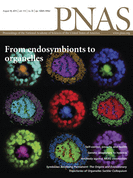Two out of the three authors of a PNAS paper on mutations underlying lung diseases are pulling it after failing to reproduce key findings.
The paper, published in 2012, investigated how mutations in lung surfactant genes induce molecular changes that lead to lung pulmonary fibrosis and lung cancer might work. But follow-up work revealed problems. In the retraction note, last author Christine Kim Garcia and second author Christoper Cano, both at the University of Texas Southwestern Medical Center, write:
Current members of the C.K.G. laboratory are unable to reproduce key findings reported in the paper.
Here’s the retraction note in full:
Retraction for “Mutant surfactant A2 proteins associated with familial pulmonary fibrosis and lung cancer induce TGF-β1 secretion,” by Meenakshi Maitra, Christopher A. Cano, and Christine Kim Garcia, which appeared in issue 51, December 18, 2012, of Proc Natl Acad Sci USA (109:21064–21069; first published December 5, 2012; 10.1073/pnas.1217069110).
Christopher A. Cano and Christine Kim Garcia wish to note, “Current members of the C.K.G. laboratory are unable to reproduce key findings reported in the paper. Specifically, we cannot demonstrate a marked increase in ELISA-detectable TGF-β from HBEC-3KT cells expressing the mutant human surfactant proteins. Although the replication experiments could not be performed using the exact reagents as the original experiments, our current findings are not compatible with the conclusions of the published report. Accordingly, we have decided to retract the article at this time and apologize to our colleagues for any inconvenience this may have caused.”
The paper has been cited 12 times, according to Thomson Scientific’s Web of Knowledge.
We called Garcia to see why first author Meenakshi Maitra was not included in the note. She told us:
All authors were given the chance to respond and she did not agree to the statement.
Maitra’s LinkedIn and Facebook profiles list her as a postdoc at UT Southwestern. We asked Garcia what Maitra’s current involvement in her lab was, and she said:
I don’t have anything else to add.
A PNAS spokesperson agreed with Garcia’s description of what happened:
Dr. Christine Garcia contacted PNAS with a request to retract the article. We contacted all authors for their approval and the first author did not wish to sign the retraction statement. We have no additional comments to add beyond the published statement.
We’ve messaged Maitra on Facebook to try to find out why she declined to sign the retraction note, and will update this post if we hear back.
Like Retraction Watch? Consider making a tax-deductible contribution to support our growth. You can also follow us on Twitter, like us on Facebook, add us to your RSS reader, and sign up on our homepage for an email every time there’s a new post. Click here to review our Comments Policy.

Hats off to the two who signed the retraction notice.
Doing the right thing.
J Biol Chem. 2013 Sep 20;288(38):27159-71. doi: 10.1074/jbc.M113.475335. Epub 2013 Aug 7.
Lung fibrosis-associated surfactant protein A1 and C variants induce latent transforming growth factor β1 secretion in lung epithelial cells.
Maitra M1, Dey M, Yuan WC, Nathanielsz PW, Garcia CK.
Author information
1From the Eugene McDermott Center for Human Growth and Development, The University of Texas Southwestern Medical Center, Dallas, Texas 75390.
2015 Retraction notice: http://www.jbc.org/content/290/35/21407.full
This is interesting as JBC calls it “withdrawn”, not “retracted”. Any reason for this?
The .pdf now has a big “withdrawn” patch on every page which covers a part of every page, so you cannot read everything anymore. The .html-page is still openly accessible, however. Nevertheless, in times of electronic access, publishers should take care not to delete anything off the record IMHO.
I did not bother to read the two papers, but when reading the titles, one wonders why two papers were necessary. Well, just a case of heavy salami-publishing…… Surfactant A2 in PNAS and surfactant A1 and C in JBC….. Does anyone else besides me miss good old times when researchers would gather relevant information for years and years to finally tell a full story?